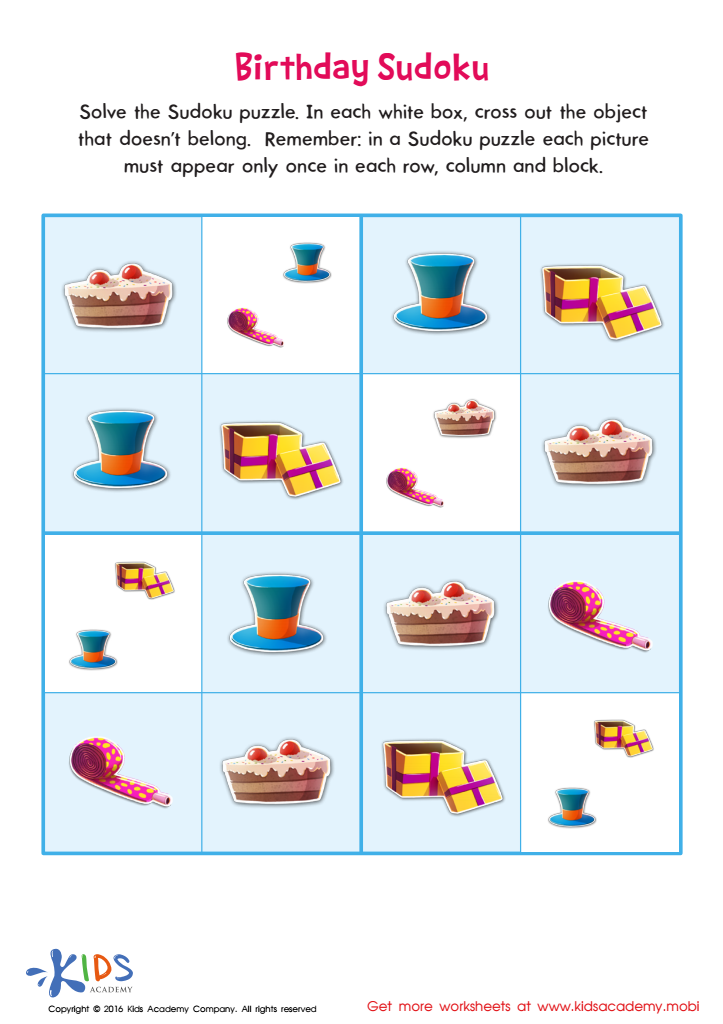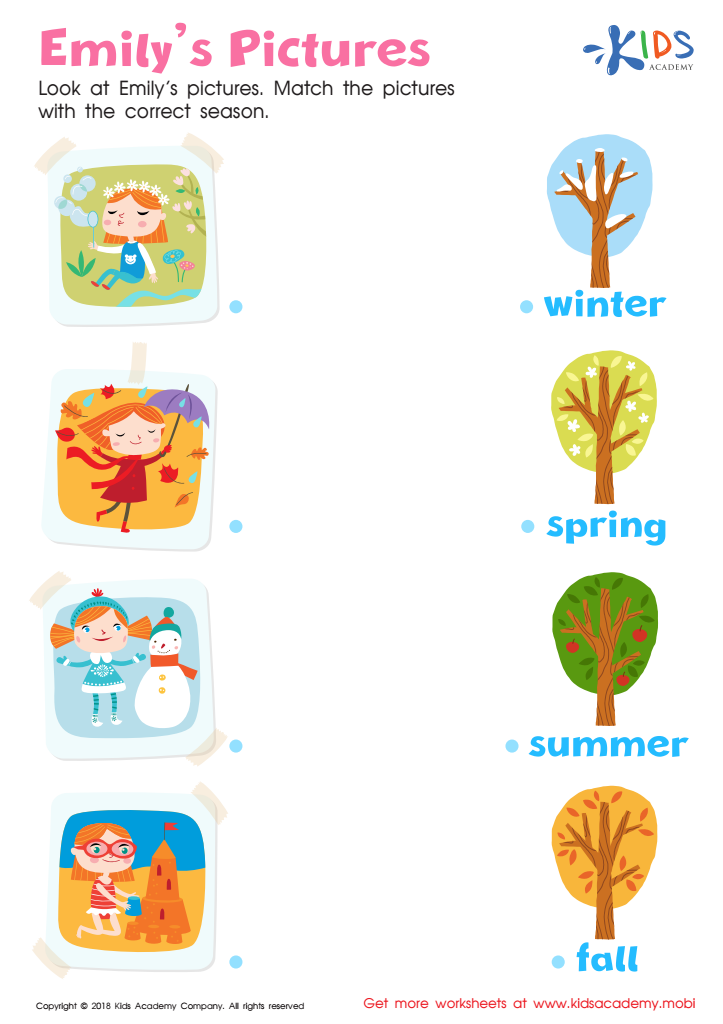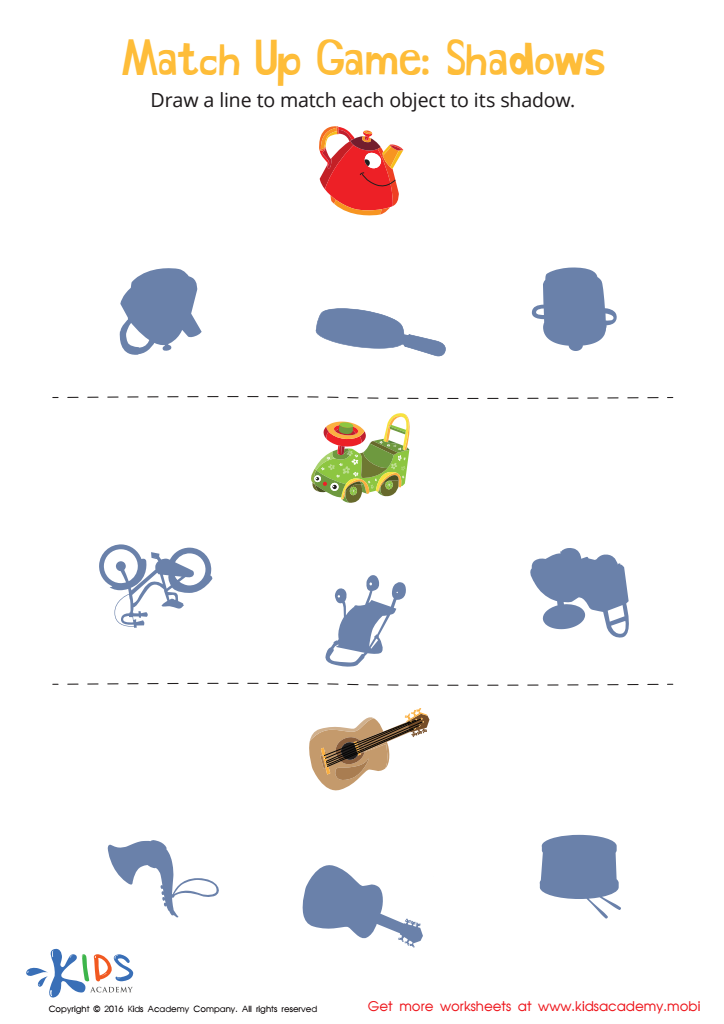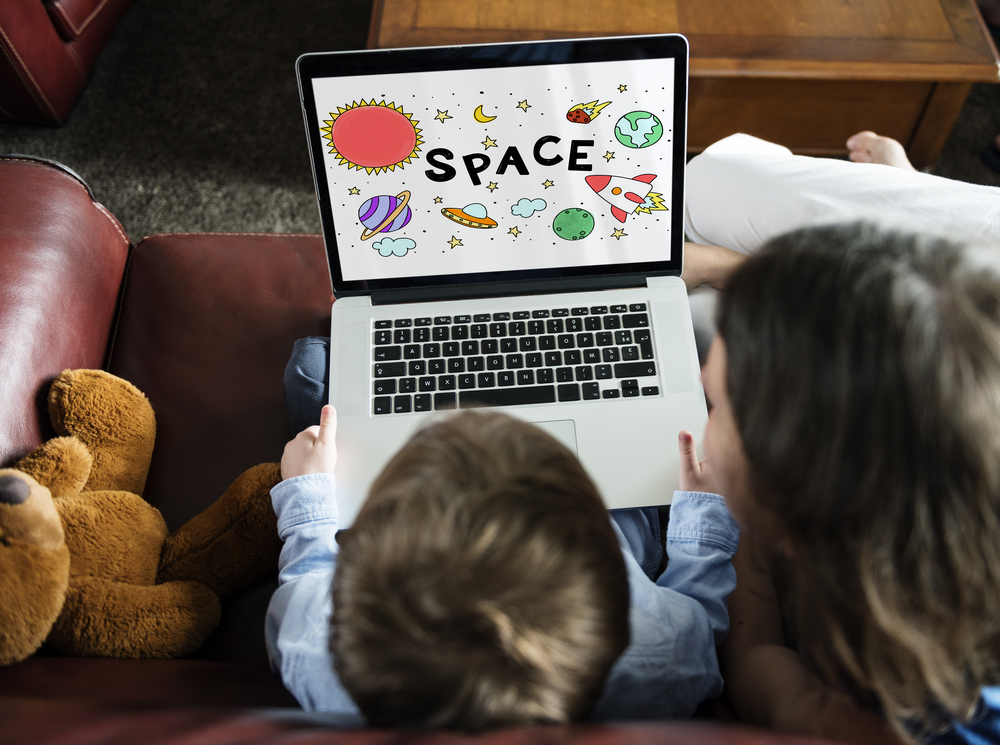Logical Reasoning Extra Challenge Matching Worksheets for Ages 4-7
3 filtered results
-
From - To
Enhance your child's critical thinking skills with our "Logical Reasoning Extra Challenge Matching Worksheets for Ages 4-7". These engaging worksheets encourage young learners to use logic and reasoning to solve problems and match related items. Designed by experienced educators, each worksheet aims to bolster foundational skills in a fun and interactive way. Perfect for both classroom and home use, these activities support cognitive development and prepare children for future academic success. Unlock their potential by making learning enjoyable and challenging. Visit our website today to access this effective learning tool and give your child the extra edge they need!


Birthday Sudoku Sorting Worksheet


Emily's Pictures Worksheet
Logical reasoning plays a foundational role in early childhood development, providing critical skills that support problem-solving, critical thinking, and understanding relationships. For children aged 4-7, engaging in logical reasoning extra challenges, such as matching activities, offers numerous benefits worthy of parents’ and teachers’ attention.
First and foremost, logical reasoning strengthens cognitive abilities. These activities help young minds learn to identify patterns, make connections, and predict outcomes—skills essential for academic subjects such as math, science, and reading comprehension. By practicing matching exercises, children improve their ability to classify objects, recognize differences and similarities, and follow sequences, fostering a structured approach to thinking.
Secondly, matching activities enhance early language and vocabulary development. As children describe and discuss their reasoning, they acquire new words and concepts, deepening their understanding and enhancing their communication skills.
Moreover, logical reasoning exercises aid in building social-emotional skills. As children work collaboratively, they learn to share ideas, take turns, and respect different perspectives, essential for fostering cooperation and empathy.
Lastly, these activities foster a growth mindset by encouraging perseverance and resilience. When faced with challenging tasks, children develop confidence in their problem-solving abilities, laying the groundwork for lifelong learning and curiosity.
In conclusion, emphasizing logical reasoning through age-appropriate matching challenges acts as a catalyst for diverse and integral developmental benefits, making it a crucial focus for both parents and teachers.

 Assign to My Students
Assign to My Students




















